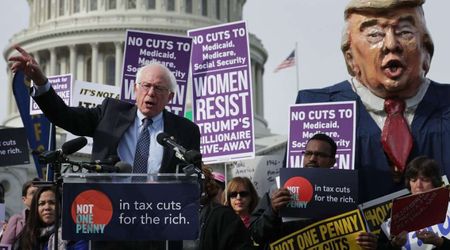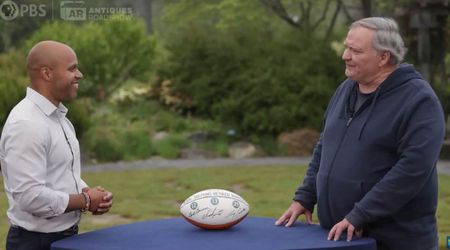'Uber For Food': How 5 Friends From UC Berkeley Built Caviar, a $400 Million Company

Caviar, a food delivery company, was launched by five friends from the University of California, Berkeley in 2012, at a time when no other food delivery app existed. Its founder, Shawn Tsao, along with his best friends took the company to a $410 valuation when they sold it to rival DoorDash, per CNBC.
How Was Caviar Conceived?
Tsao majored in architecture and sustainable design at Berkeley and worked side-by-side with four of his best friends, Abel Lin, Andy Zhang, Richard Din and Jason Wang, who all became co-founders of Caviar. They initially came up with the idea of a daily deals app for food similar to Groupon. They named the company “Munch on Me” and went on to earn a slot at start-up accelerator Y Combinator generating a $180,000 in investment money. However, when Groupon started posting losses with its market value dropping more than 80%, Munch on Me started losing investors too.
As per the CNBC Make It report, Tsao had only $10 in the bank. However, they continued to stick with the idea of creating a successful start-up and explored more options. They sold Munch on Me’s data for “barely anything” and got to scribbling new ideas together. In the process, Tsao got “really hungry” and wished he could get his favorite sandwich at his doorstep from a restaurant across town. It was then that the friends came up with the idea to build an “Uber For Food”, as per the report. They launched Caviar in 2012 with a specialized model.
Their service focused on curating a list of most desirable restaurants and provide its own fleet of delivery drivers to pick up food and drop it off with customers.
So there you have it, that's how you turn a sandwich craving into a $400-million business idea. Check out the full story here: https://t.co/qY6IFywNri
— JasonRaznick (@JasonRaznick) October 13, 2023
At the time, not many food delivery apps existed. GrubHub and Seamless were there, and Postmates launched at the same time as Caviar. Food delivery giant DoorDash started a year later.
Tsao’s took the role of “operations lead” and worked on building partnerships with popular restaurants. By onboarding popular restaurants on their platform, they generated a lot of indirect buzz without spending anything on marketing. People would talk about how popular restaurants were now delivering food and end up on the Caviar platform. With this, Caviar just blew up, Tsao said in the report.

Caviar’s Acquisition
As the company racked up investments from high profile investors such as the Winklevoss twins, Andreessen Horowitz and Tiger Global Management, Cavair gained attention of the top tech companies and associates. They soon got a “nine-figure acquisition offer,” from Jack Dorsey’s payments platform Square (now known as Block) in 2014. The all-stock deal valued the company at over $100 million.
They accepted the deal and bagged stock in the combined company as well. They also got a $2 million cash sign-on bonus to be split between the founders. Five years later, Square sold Caviar to DoorDash for a whopping $410 million. The Caviar co-founders did not disclose how much they made from the company’s sale. However, the five founders owned more than 50% of the company at the time of its sale to Square. Although Tsao did reveal to CNBC that they weren’t involved in the sale to DoorDash.
























